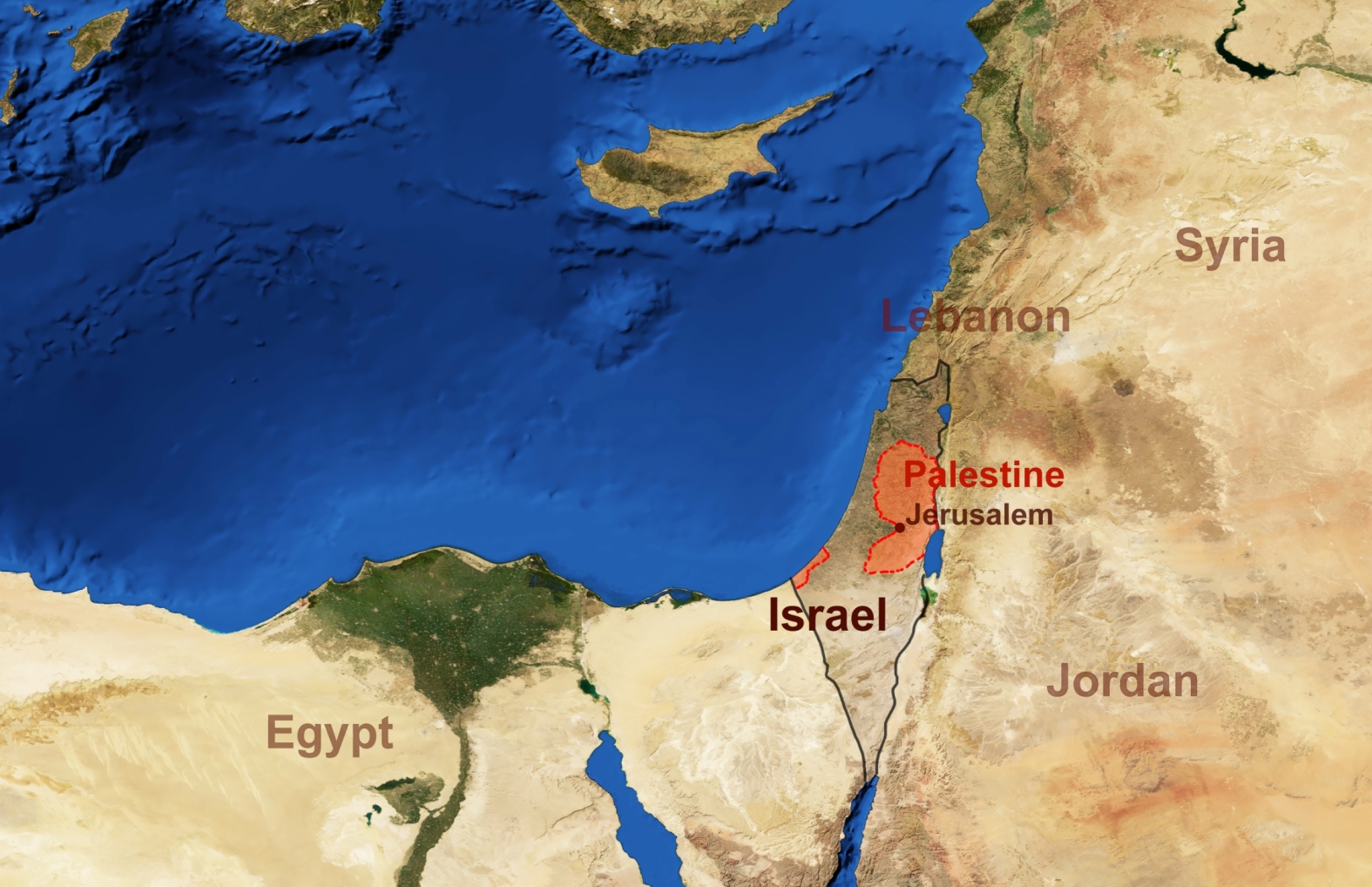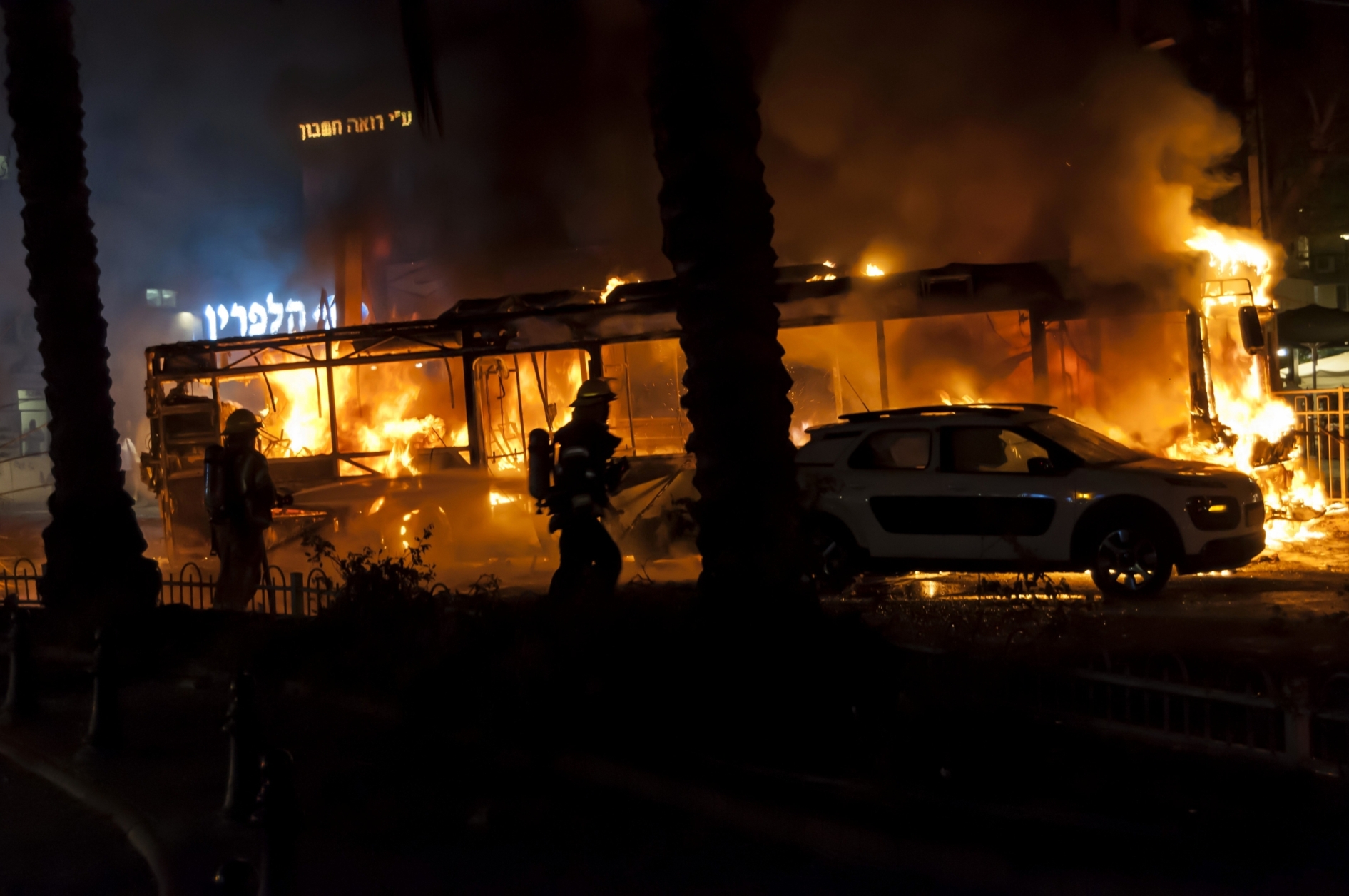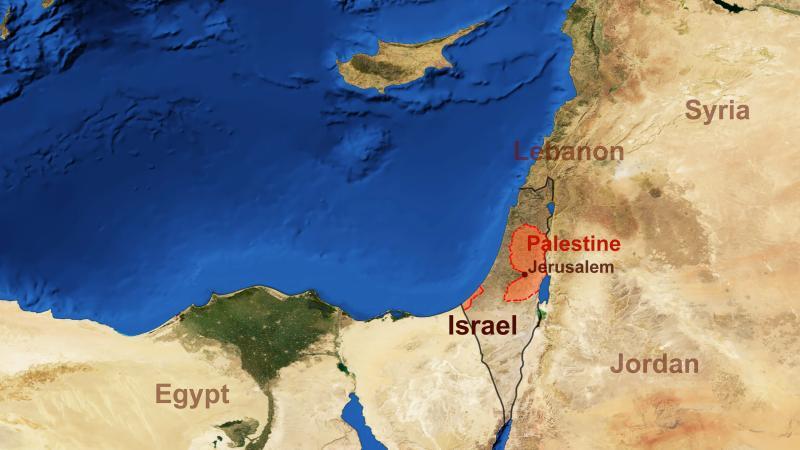Abstract: Since March 22, 2022, Israel has experienced four terrorist attacks. Overall, the attacks involved 5 Arab assailants who were responsible for the deaths of 14 people, including two police officers. In response to the attack, several raids carried out by the Israeli forces in the West Bank led to firing between the Palestinians and the Israeli security forces, leading to the death of a Palestinian. The issue further escalated, resulting in crackdowns by the Israeli Defence Forces within the al-Aqsa Mosque and the Haram al-Sharif/Temple Mount compound during the Friday prayers of Ramadan, which resulted in the clashes between the worshippers and the security forces. The article thus discusses the violence that has escalated in the al-Aqsa Mosque and the Haram al-Sharif/Temple Mount and its political and security repercussions. It further analyses the possibilities of the violence developing into a full-blown war like last year.
Bottom-line-up-front: The current tensions involve raids in the West Bank, Gaza, and the Al Aqsa mosque. The crackdowns in the Al Aqsa mosque were one of the triggers that led to the 11-day Israel-Hamas conflict last year. Hence, it is safe to assume that these escalations can lead to an Israel-Hamas war this year, even though Hamas has stated that they would prioritize the rebuilding efforts in Gaza after the previous year’s conflict.
Problem statement: How to assess the current and near-future security situation in Israel in light of recent attacks from Gaza?
So what?: There need to be regular talks between Israel and Palestinian leaders to ascertain law and order and resolve the conflict with the rights of Israelis and Palestinians being treated equally. There must be a renewal of talks between Israel and Palestinian political leaders and lawmakers.

Source: shutterstock.com/Viacheslac Lopatin
Israel Under Attack
Since March 22, Israel witnessed four deadly terrorist attacks that involved 5 Arab attackers that resulted in 14 deaths[1]. The events have highlighted the tensions and the seriousness of the security situation in the country in the lead-up to major religious festivals. It is a general observation that there is a spike in attacks during Ramadan in Israel. However, it is rare as Passover, Ramadan, and Easter holidays coincide this year[2]. Hence, there will be increased violence, with the Al-Aqsa Mosque being the focal point of such violence. Referred to as Al-Aqsa mosque by the Muslims and the Temple Mount by the Jews, it is a sacred place for both the communities, although Jews are banned from praying there.
It is a general observation that there is a spike in attacks during Ramadan in Israel. However, it is rare as Passover, Ramadan, and Easter holidays coincide this year.
The tensions are already rising, and the situation can also take a sharp political angle. On April 6, the government’s coalition chairman MK Edit Silman resigned from the ruling coalition, resulting in the coalition government losing its majority. Even though it did not result in the government’s fall, it would be difficult for Prime Minister Naftali Bennett’s government to pass new legislation as he has lost his thin majority in the Knesset. Also, even if one member defects from the government to the opposition, it would result in the country going for a fifth parliamentary election in four years[3].
The grave security concerns and the political blow put Bennett in a tough spot. Unlike the right-wing government with stringent measures to deal with the Palestinians, the Bennett coalition government also includes an Arab party that further adds fragility to the state of affairs. Such a coalition leaves little room for the current government as they are in coalition with the right, left, and Arab Parties, whereas the right-wing government in the past used an iron-fist response to deal with the Palestinian issue. Also, Bennett is trying to find ways to ensure safety and security as the attackers were able to procure arms and ammunition. This way, Bennett would at least be able to ascertain that he is still in command of the ship. Nonetheless, such a crackdown on the Palestinians would be used to draw further international attention to gather support and sympathy for the Palestinian’s cause and their oppression due to the Israeli occupation.

Source: shutterstock.com/Roman Yanushevsky
Palestinian Frustration
Despite all this tension, the growing frustration among the Palestinians is rooted in two factors – the lack of efficient Palestinian leadership and the warring support of Arab nations that have historically supported the two-state solution.
First, there is growing resentment among the Palestinians against Palestinian Authority President Mahmoud Abbas[4]. The Palestinians want President Mahmoud Abbas to resign, as they believe that he is not fit to lead them to protect and defend their rights. Alongside that, there is rising support for Hamas, as the Palestinians believe that Hamas was able to achieve a victory against Israel in the 11-day conflict last year. The Palestinians think the West side-lined President Abbas during the previous conflict[5].
Second is the diminishing hope of the Palestinians for the two-state solution and the warring of support by UAE, Bahrain, Morocco, and Sudan as they have normalized ties with Israel. The Arab States have always advocated for Palestinian rights and the two-state solution in the past. At the same time, they repeatedly expressed their outcry over the Israeli occupation of the West Bank and the Gaza Strip. However, all of that changed since the launch of the Abraham Accord in 2020, spearheaded by President Donald Trump, which eventually laid the foundation for normalizing several Arab nations’ ties with Israel[6].
The Arab States have always advocated for Palestinian rights and the two-state solution while repeatedly expressing their outcry over the Israeli occupation of the West Bank and the Gaza Strip.
The recent Negev Summit, organized by Israel and attended by the US Secretary of State Anthony Blinken and their counterparts from Bahrain, Egypt, Morocco, and the UAE, also adds to the tension. The summit was organized to discuss regional security and economic cooperation. Hence, it is crucial to understand that these developments occur when there is a lack of bilateral Israel – Palestinian talk[7].
After observing the recent events, it is predictable to state that the violence will only continue to rise in the following weeks. It is expected that Arab Israelis and the Palestinians will carry out several attacks—including car-ramming and possible stabbing cases—during the following week. There has been a surge in the crackdown on Palestinians in the Al Aqsa Mosque and other sites, particularly in the West Bank and Gaza, by the Israel Defence Forces to prevent considerable violence. Despite the heightened measures, such as increased security forces’ presence and checkpoints, it will not be sufficient to deter lone wolf attacks as they require minimal planning, fewer resources, and are easy to execute[8]. At the same time, the crackdowns would act as fuel for organizations like Hamas and the Palestinian Islamic Jihad (PIJ). In fact, in a group statement, Hamas also threatened an escalation of conflict and stated that Israel would have to “bear all the consequences” for the attack on the worshippers in the Al-Aqsa mosque[9]. The statement by Hamas leader Ismail Haniyeh regarding the repercussions of any security actions in the Al-Aqsa mosque or if the Jews try to pray in the vicinity has further raised security concerns in the coming days. Also, countries such as Jordan and Egypt, Bahrain, and the UAE that have normalized ties with Israel have condemned the crackdown on the Al-Aqsa mosque[10].
Apart from that, there has also been the rising involvement of ISIS, a relatively new player on the Palestinian scene, who took responsibility for the attack on March 28 in Hadera[11]. Although ISIS is witnessing an expansion of its support base among Palestine and the Arab – Israeli diaspora, it is still early to state that ISIS has a strong foothold in the region that may cause concerns among the Israeli security forces[12]. However, the responsibility taken by ISIS is pretty skeptical regarding the attacks because the operational framework of the attacks varied from the common tactics used by ISIS to carry out attacks[13]. The attackers of the Bnei Brak attack were arrested previously for trying to join ISIS. When they were released from jail, they took inspiration from the videos and photos uploaded by ISIS-run accounts so that the attacker could carry out the attacks. So, as per the security forces, the attackers may not have gotten direct orders from ISIS but carried out the attack all by themselves[14].
Future
Last but not least, it was around the end of last year’s Ramadan when the clampdown on the Al Aqsa Mosque by the Israel Defence Forces became a trigger for the 11-day Israel-Hamas conflict that ended with a ceasefire last year. Despite the conflict, it is estimated that Hamas is still in possession of 8,000 rockets and several rocket launchers[15]. The recent events in Israel include attacks in the country, the security force’s clampdown in several locations in the West Bank and Gaza, and the raids within the Al-Aqsa Mosque and the Haram al-Sharif/Temple Mount Compound during the Friday prayers being the epicenter. This resulted in an outcry from the Arab community of Israel and the Palestinians, which increased the clashes between the Palestinian protestors and the Israeli settlers. Alongside that, Palestinian militants fired rockets from Gaza on April 20. No casualties and material loss were reported as the missile hit an open field. Be that it may, the attack led to strong retaliation from Israel as they launched airstrikes on April 21[16].
The recent events in Israel resulted in an outcry from the Arab community of Israel and the Palestinians.
Furthermore, Iran is the primary supplier of arms and ammunition to the Hamas and the PIJ. Now, Iran and Israel have been in a proxy war for a long time as Iran wants to dissolve the Jewish state. Hence, it would use the state of affairs and try to fuel these tensions by highlighting the betrayal of some of the Arab nations, including Bahrain and the UAE have normalized their ties with Israel to oppose Iran, which has eventually led to the decline in the prospects of the two-state solution. Hence, keeping all these in mind, another Israel-Hamas conflict is not ruled out, even though Hamas has stated that it intends to prioritize rebuilding the Gaza Strip after last year’s conflict.
Apoorva Iyer completed her Bachelor of Arts degree in Political Science from Delhi University. She has published several articles and research papers on renowned websites and international journals. She has also worked extensively in several think tanks and political and security risk consulting firms. Her interests lie in international relations and security studies. The views contained in this article are the author’s alone.
[1] Patrick Kingsley and Gabby Sobelman, “Palestinian Gunman Kill 5 in Israel’s Fifth Attack in Recent Days,” The New York Times, March 29, 2022, https://www.nytimes.com/2022/03/29/world/middleeast/israel-shooting-deaths.html.
[2] Christoph Strack, “Passover, Easter, Ramadan 2022 Fall Simultaneously: DW: 15.04.2022,” DW.COM, April 15, 2022, https://www.dw.com/en/passover-easter-ramadan-2022-fall-simultaneously/a-61478935.
[3] David Horovitz, “How Naftali Bennett Doomed His Own Coalition,” The Times of Israel, April 6, 2022, https://www.timesofisrael.com/how-naftali-bennett-doomed-his-own-coalition/.
[4] Kamel Hawwash, “Palestinians should unite to oppose the upcoming PCC meeting,” Opinions | Al Jazeera, February 04, 2022, retrieved May 7, 2022, from https://www.aljazeera.com/opinions/2022/2/4/palestinians-should-unite-to-oppose-the-upcoming-pcc-meeting.
[5] Khalil Shikaki and Walid Ladadweh, “Public Opinion Poll No (82),” PCPSR, December 14, 2021, https://pcpsr.org/en/node/866.
[6] Dan Ephron, “How Arab Ties with Israel Became the Middle East’s New Normal,” Foreign Policy, December 21, 2020, https://foreignpolicy.com/2020/12/21/arab-ties-israel-diplomacy-normalization-middle-east/.
[7] Lucy Kurtzer-Ellenbogen and Hesham Youssef, “The Negev Summit Furthers Arab-Israeli Normalization,” United States Institute of Peace, March 31, 2022, https://www.usip.org/publications/2022/03/negev-summit-furthers-arab-israeli-normalization.
[8] Sakina Fatima, “Israel on Heightened Alert after Deadly Attacks,” The Siasat Daily, April 1, 2022, https://www.siasat.com/israel-on-heightened-alert-after-deadly-attacks-2300595/.
[9] Joseph Krauss, “Clashes Erupt at Mosque in Jerusalem, 152 Palestinians Hurt,” Time, April 15, 2022, https://time.com/6167393/al-aqsa-mosque-jerusalem/.
[10] “UAE, Bahrain, Morocco Join Condemnation of Police Actions at Temple Mount Clashes,” The Times of Israel, April 16, 2022, https://www.timesofisrael.com/uae-bahrain-join-condemnation-of-police-actions-amid-temple-mount-clashes/.
[11] Hadas Gold, “Isis Attack Kills Two and Injures Six in Israel as Arab and Israeli Officials Hold Historic Summit,” CNN, Cable News Network, March 28, 2022, https://edition.cnn.com/2022/03/28/middleeast/israel-isis-attack-intl/index.html.
[12] Amos Harel, “The Common Thread between Recent Terror Attacks in Israel,” Haaretz.com, Haaretz, April 8, 2022, https://www.haaretz.com/israel-news/.premium.HIGHLIGHT-the-common-thread-between-recent-terror-attacks-in-israel-1.10728149.
[13] Mohammed Khalfan Al-Sawwafi, “Isis and Israel: Implications and Outcomes of Shifting Positions,” TRENDS Research and Advisory ISIS and Israel Implications and outcomes of shifting positions Comments, March 19, 2020, https://trendsresearch.org/insight/isis-and-israel-implications-and-outcomes-of-shifting-positions/.
[14] Ido Levy, “How big is the islamic state threat in Israel?,” The Washington Institute, April 08, 2022, retrieved May 8, 2022, from https://www.washingtoninstitute.org/policy-analysis/how-big-islamic-state-threat-israel.
[15] Sebastien Roblin, “How Hamas’ arsenal shaped the Gaza War of May 2021,” Forbes, May 26, 2021, retrieved May 7, 2022, from https://www.forbes.com/sites/sebastienroblin/2021/05/25/how-hamass-arsenal-shaped-the-gaza-war-of-may-2021/?sh=226ff1f079df
[16] “Gaza Militants Fire Rockets, Israel Responds with Strikes in Biggest Escalation since Last War,” France 24, April 21, 2022, https://www.france24.com/en/middle-east/20220420-israel-launches-fresh-strikes-on-gaza-after-rocket-fire.






